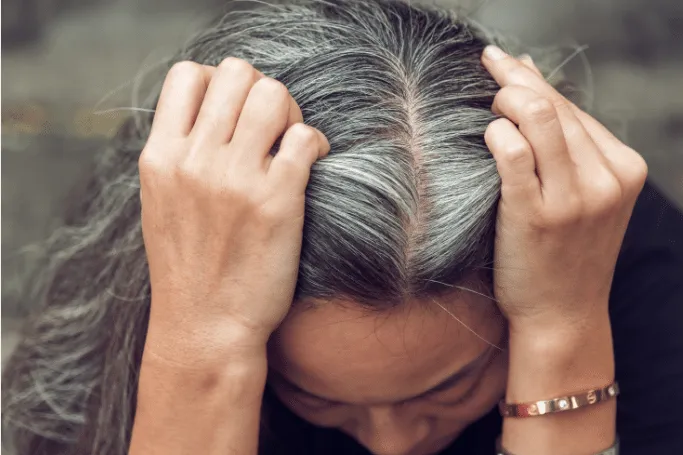How to Manage Rapid Hair Growth

The medical term for excessive hair growth, usually in areas where hair can result in aesthetic issues, is hirsutism. There are both temporary and permanent hair removal techniques, which is good news.
On areas of skin where men often have thick, dark body hair, like the upper lip, cheeks, chin, back, chest, and belly, most women have just extremely fine hair. However, hirsutism, a disorder that results in excessive hair growth in specific places, affects roughly 8% of women. Excess hair, also known as hypertrichosis, is at best obtrusive and at worst unsightly. Bleaching and hair removal are popular treatment choices, but there are some drugs that can aid in addition to more long-lasting procedures.
Causes and Signs of Excessive Hair Growth
If there is a medical reason for the hirsutism, it can be determined by symptoms other than the excessive hair growth. You might also:
Abnormal menstrual periods or having no period
A deep voice
Acne
Increased muscle mass
Decreased breast size
High amounts of androgens, or male sex hormones, are present in around half of all hirsute women. These rises in female androgen levels could be caused by:
Polycystic ovary syndrome in which a hormone imbalance causes cysts to form on the ovaries
Cushing's syndrome, which occurs when your body overproduces the hormone cortisol for an extended period
Congenital adrenal hyperplasia, a group of disorders that interfere with the adrenal gland and cause the body to produce more androgen
Tumors growing in the ovaries and adrenal glands
Medications such as steroids, some hormones, and a drug used to treat endometriosis called Danocrine (danazol)
Although doctors have not established why, excessive hair growth can also happen if a woman's hair follicles are unusually susceptible to male hormones. The precise reason
for a woman's excessive hair growth is frequently never discovered.
Are You Prone to Unusual Hair Growth?
There are a few things that might cause hirsutism, like:
Genetics: The disorder frequently runs in some families.
Race or ethnicity: Women of Middle Eastern, South Asian, and Mediterranean heritage are more likely to develop hirsutism than other ethnic groupings.
Menopause
Medications for Hair Growth Treatment
The majority of treatments for excessive hair growth include temporary or permanent hair removal techniques:
Shaving. You will get stubble if you don't shave regularly, but otherwise it's a safe and convenient option. It's possible that the regrown hair will appear thicker than it actually is.
Removing hair with wax or tweezers.
Individual hairs can be plucked out with tweezers, while larger areas of unwanted hair can be waxed off. These treatments are low-cost and risk-free, although they may cause discomfort and skin irritation.
Depilatories. Hair removal treatments containing chemicals can be effective, but they also cause skin irritation. Make sure you don't have an allergic reaction to a new depilatory by testing it on the inside of your wrist a day before you plan to use it.
Electrolysis. This technique permanently removes hair by burning the follicle with an electrical current. Due of the limited effectiveness of a single electrolysis session, the procedure can be both time-consuming and costly.
Get rid of unwanted hair with a laser. The hair follicle is damaged by a laser beam, which results in hair loss. As with electrolysis, this is a pricey and time-consuming option. A regrowth of hair is possible, unlike with electrolysis.
Only a trained expert, such as a cosmetologist, aesthetician, or electrologist, should perform electrolysis or laser hair removal.
Some ladies opt to bleach the extra hair using a lotion or paste rather than remove it. Chemicals in bleaches can irritate the skin, and the results may not be as pleasant as permanent hair removal.
Some ladies opt to bleach the extra hair using a lotion or paste rather than remove it. Chemicals in bleaches can irritate the skin, and the results may not be as pleasant as permanent hair removal.
Medical Solutions for Excessive Hair Growth
Some drugs can be used to reduce the amount of hair that grows:
1. Androgen production can be lowered by using birth control.
2. Anti-androgen drugs like Aldactone (spironolactone) and Proscar (finasteride) prevent the effects of androgenic hormones on the body, although it may take three to six months for these drugs to kick in. You should use reliable contraception while taking them since they can cause birth problems if you get pregnant while taking them.
3. The prescription cream Vaniqa (eflornithine) can be used to reduce hair growth, but it does not remove any hair that has already grown. You can put it to use on your cheeks and chin.
Related posts



